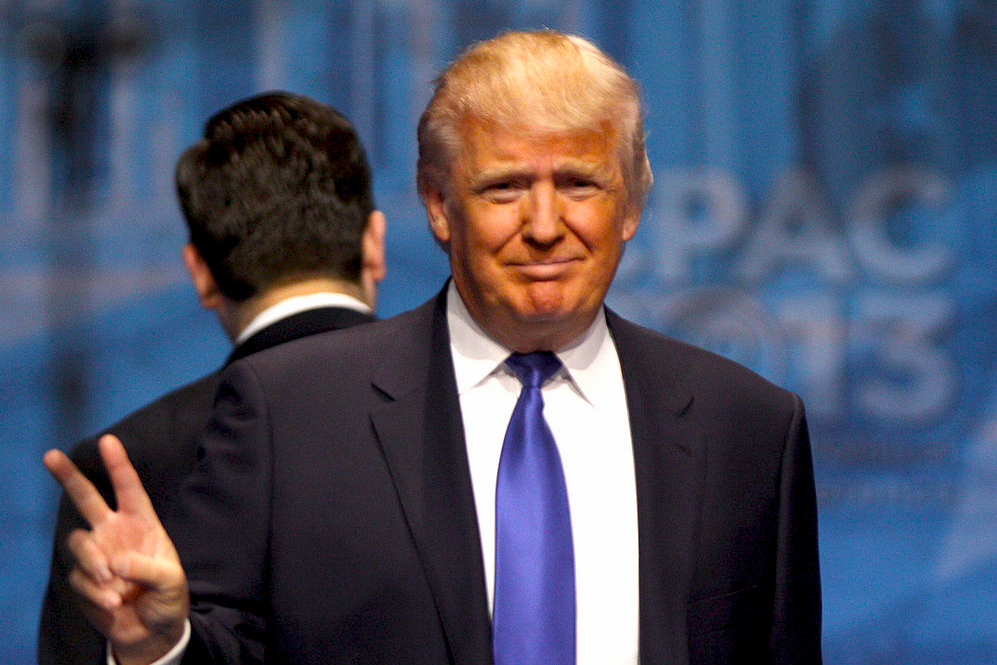
With his cream windbreaker, scruffy beard, prayer battered slip-on shoes and Holocaust-denying views, Mahmoud Ahmadinejad dressed himself to oppose in every way the urbane, elegant cleric, as comfortable at Davos as the smartest suit from Rothschilds, who preceded him as president.
Ahmadinejad campaigned for the plain man against the sophisticates, the monoglot who could just about manage to support his family against the upper middle classes; and the pious woman who cleans the houses or the rich after illegal alcohol fuelled parties. He might as well have campaigned against Madonna — “The world is laughing at us right now”, she said of Trump’s win — because his people live with that disdain every day.
It’s the same disdain educated Israelis visit upon their Likud-voting countrymen, or Warsaw’s intellectuals inflict on the inhabitants of poor, backward, religious “Poland B” (Warsaw, naturally, being in “Poland A”), and it, as David Cameron knows to its cost, can leave the smoothest of politicians undone.
The populist feeds on the constant stream of slights, disrespect and even passive inattention his supporters notice. He taps into the insecurity they feel about lacking the right education, social connections and tastes. He adds more serious fears, real exaggerated or invented outright. His followers believe they can trust in his protection, because they see he knows what it’s like to be left outside.
He sets himself up against reason, convention and stability. He proclaims himself the exception, to whom rules should not apply: “I alone,” says Donald Trump “can fix it.” But Trump is hardly the first, and 2016 wasn’t even the first time he’s run. We need to know; why him? and why now?
Social democracy collapsed when identity politics took over the left
The answer is not to be found in social problems but in the collapse of mechanisms to deal with them. In the West, the culprit is the self-destruction of social democracy.
Democratic government is based on the fiction that human societies, however complex they may be can be understood sufficiently well by inexpert men and women. People who know little of history, economics, science and even the functionally illiterate are given ultimate political power.
It only works because none of us make individual dispassionate political decisions. We in fact form our views collectively. We talk to friends and colleagues; argue with opponents, disagree with enemies and build up stories by which we make sense of politics. Very few of us make decisions about, say, climate change because they have formed a view about the atmospheric physics. We rely on the judgements made in networks of people we trust and when those networks go wrong, or are actively undermined, so do our beliefs.
Social democracy provided the Western working classes with such a network but collapsed when identity politics took over the left.
The left’s moral disintegration comes at a time when mass manufacturing industry has finished in the West, the social status of industrial working men has collapsed. Rather than protect you, say the populists to great success in Britain and America, they sacrifice you to a snobbish elite. Geert Wilders and Marine Le Pen plan to do exactly the same next year.
Add the votes of the formerly left-wing working classes to those of social conservatives, along with the victims of disdain and ridicule from the culturally dominant urban liberals, and a coalition large enough to win elections and power is created.
Though it has some economic causes, the present division is cultural and irreconcilable. They say we despise them for their bigotry, closed-mindedness and ignorance, and they are right. If we’re to stay true to our principles, of internationalism, equality and reason, we have to look down on their values and oppose the people who hold them. It may be more polite to call them traditional instead of bigoted, rooted instead of closed minded and instinctive instead of ignorant, but they’re not stupid and will see it for the bullshit it is. Theirs is a revolt against forty years of condescension. They want dignity and recognition, and will only be satisfied when we and our ideals are defeated.
There can be no stable compromise with this illiberal revival. It will leave our societies poorer, weaker and more violent, and the world vulnerable to Russian aggression. This year’s elections have made it clearer than even the facts don’t speak for themselves, and that the age of canned political messaging is over. We need to rediscover the arts of political rhetoric and win people back to liberalism’s cause. This won’t be done by sacrificing our principles to “legitimate concerns”, as defined by our opponents, but by meeting them in frank and open political battle, defending our beliefs in language their supporters understand, organising efficient political machines and making use of every means available in democratic societies to secure the liberal constitutional order for the next generation.